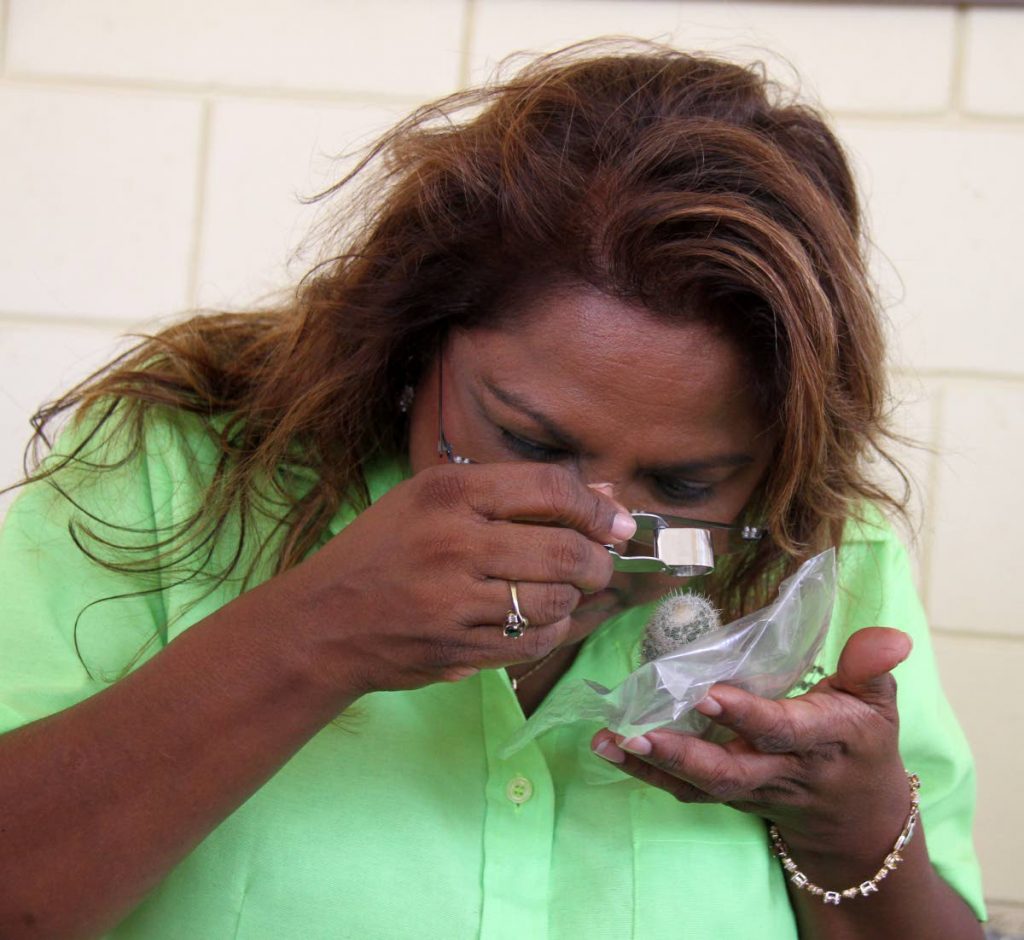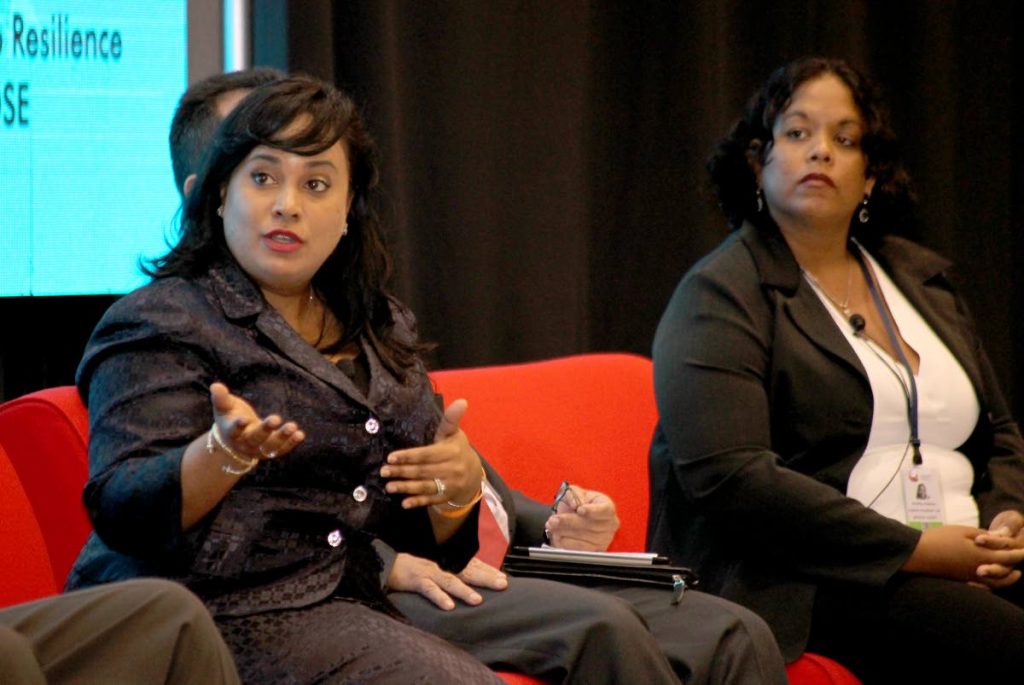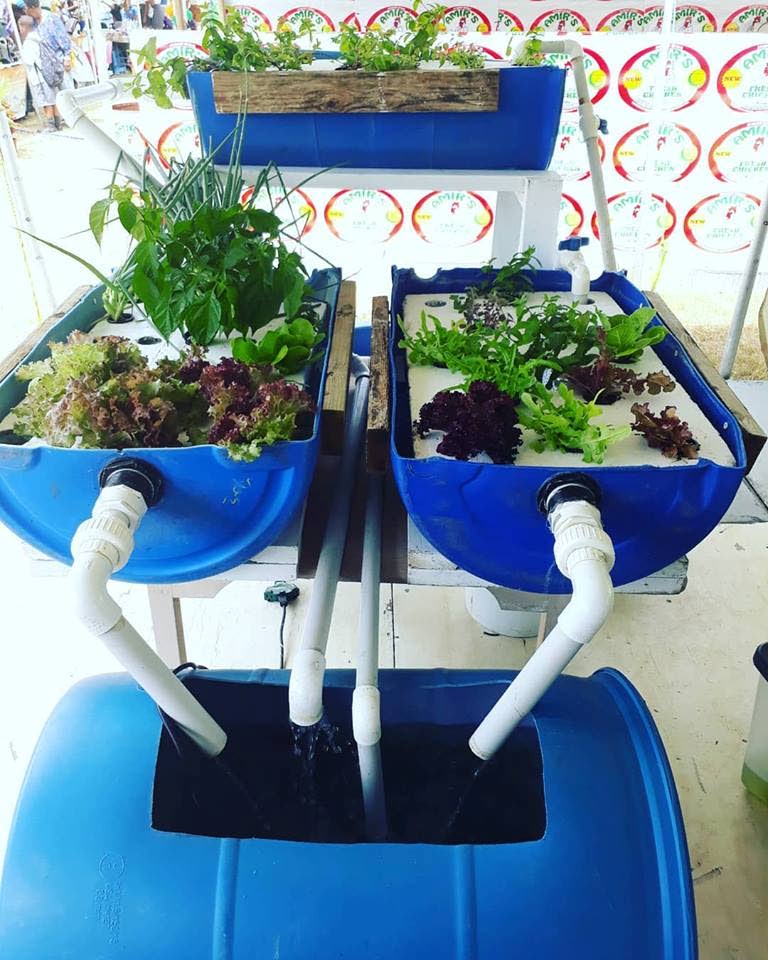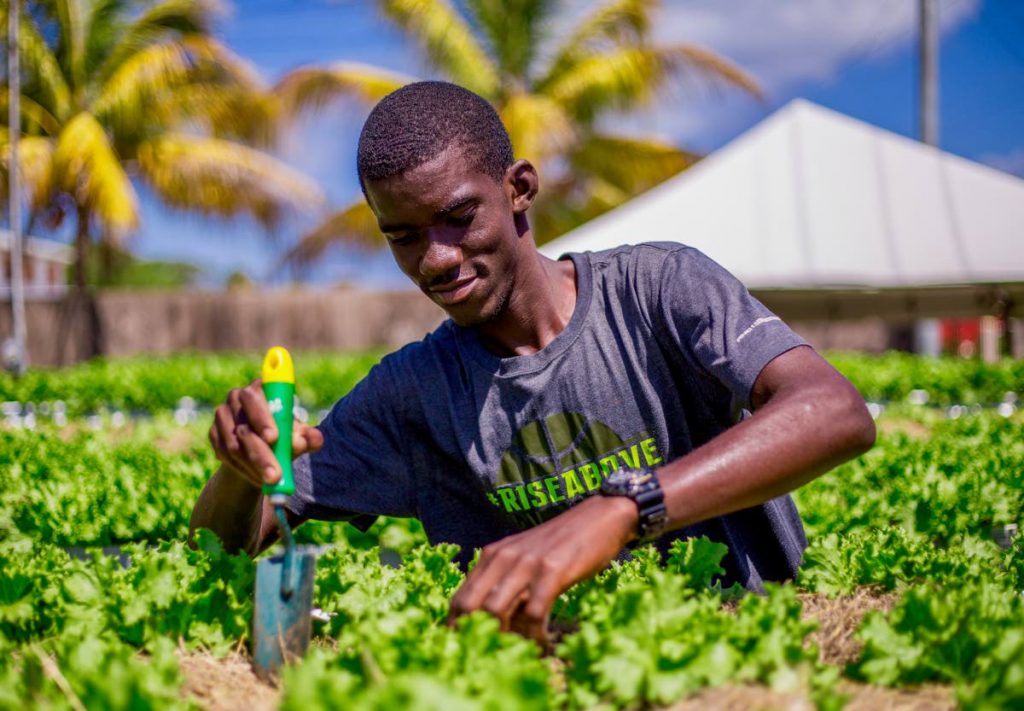Agriculture still 'old school'

GREATER effort must be made to encourage more women and young people to become involved in agriculture in the Caribbean.
Kristina Adams, owner and manager of Adams Aquafarm in Barbados, made this observation during the seminar – Agriculture: Let's Embrace the Opportunities – last Wednesday, as part of the 49th annual meeting of the Caribbean Development Bank (CDB), Hyatt Regency, Port of Spain.

Agriculture in the region is "old school", she said, designed more for men than for women, in stark contrast to countries, such as the United States and Canada, where agricultural has become "gender neutral" as a result of the introduction of technology in the sector. It is a misconception, she also observed, that no significant education or training is needed for someone to get into farming.
Having trained in Canada and the US Virgin Islands in breeding fish, fish nutrition and health – and recirculating aquaculture systems – Adams said people need to accept that women's role in agriculture should not be simply "sorting fish or planting seeds."
Adams Aquafarm produces red tilapia for Barbados' hotel and restaurant industry. The aquafarm is also involved in the breeding of red claw crayfish. Adams believes young people are needed to make "the big change" in agriculture, but said they do not receive sufficient support to get their businesses off the ground.

Using aquaculture as an example, she said many young people start off with 50 fish in a tank and minimal funding. She suggested two tonnes of fish per tank and the associated support are a good way to start in aquaculture.
Relating her own efforts, Adams took seven years – between 2006 to 2013 – to establish her business, "I did everything on my own." There is not enough information in the region to help farmers develop their commodities for maximum benefit, she observed, adding what is available at local agriculture offices are often outdated. Also, when farmers search online, they find methods used in other countries which are unsuitable for the Caribbean.

FILE PHOTO/DAVID REID
Regional farmers have since begun sharing information on WhatsApp about different ways to develop their respective commodities and gain greater access to the value chain, Adams disclosed. She also dismissed the myth that aquaculture could not thrive in water-scarce countries like Barbados, and said people would be surprised to learn that water is "the lowest bill" in her business and labour is the highest.
National Agricultural Marketing and Development Corporation acting CEO Nirmalla Debysingh-Persad agreed with Adams about the need for a single source of information to help farmers. Debysingh-Persad said many farmers find it difficult to get greater value for their food commodities because of the numerous regulations that have to be satisfied.
Belize Agriculture Ministry CEO Jose Alpuche said there has been a lack of proper policy for agriculture in the region. Agriculture, he said, has been seen for a long time as a sector that survives on hand outs. That has to change. Outlining efforts by farmers in Belize to access markets in other countries, Alpuche said agriculture needs to be seen more as a business.
And there must be cross border investments to develop agriculture, Caribbean Agricultural Research and Development Institute executive director Barton Clarke contributed in his presentation. He cited investments by Eastern Caribbean Mills in rice in Guyana and Pinehill, of Barbados, in citrus in Belize, as examples.
Infrastructure, he said, is critical to developing the sector and recalled that in 1950, Israel took the bold decision to construct a 300-metre pipeline to bring in water for irrigation, noting many people scoffed at the idea that this initiative would ensure the country's food security. Today, he said, the pipeline has become "the salvation of Israel."

Comments
"Agriculture still ‘old school’"